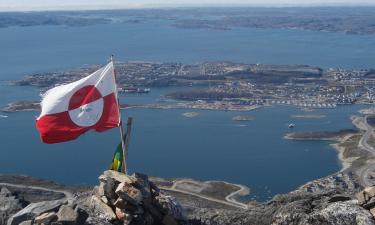Mikhail Khodorkovsky unwilling to recollect the past
Giving himself credit for the development of Yukos, Mr. Khodorkovsky does not mention anything about his criminal past
The status of a prisoner does not stop the former CEO of the Russian oil giant Yukos, Mikhail Khodorkovsky, from conducting activities with mass media. When communicating with Russian reporters, Mr. Khodorkovsky tries to display decorum and cultivate the image of a dissident to conceal criminal aspects of his biography. Quite on the contrary, when it comes to interviews with foreign media outlets, the former Russian oligarch feels really inspired to dwell upon his efforts that he used to take to raise the Russian economy from ruins under severe conditions of the incipient market system. 
Mr. Khorodkovsky did not say anything about the distribution of corruption assets of Russia's largest enterprises among a narrow circle of oligarchs during his recent interviews with journalists from leading foreign media outlets. The former media tycoon apparently decided to turn over that page of his life and switch journalists' attention to his current disgraceful position. Mikhail Khodorkovsky stated that he was going to stop his business career and start dealing with public activities, to form a civil society in Russia as well as independent and responsible opposition. The former CEO of Yukos did not recollect the dark sides of his past, which cast shadow on the image of the “political prisoner.” Mr. Khodorkovsky did not even answer direct questions on the matter.
In particular, Mikhail Khodorkovsky told a Corriere della Sera correspondent that he had supposedly paid two billion dollars for 40 percent of Yukos, the debt burden of which was evaluated at three billion dollars in 1996-1997. Estonia's Slohtuleht Newspaper wrote a story about Mr. Khodorkovsky making an up-to-date prosperous oil company from the “dilapidated conglomerate of outdated assets,” as Yukos used to be according to Khodorkovsky's opinion.
It brings up the idea that the former oligarch probably makes such statements with a hope that foreign journalists are ignorant when it comes to profound analysis of Russia's economic experience in the middle and at the end of the 1990s.
Yukos suffered a financial crisis in 1995 indeed, although it still remained one of the most promising Russian companies in the national oil industry. The company's most valuable assets within the scope of the “loans for shares” scheme were put up for pawn auctions that were conducted by oligarchs-owned banks. The banks were originally supposed to act for the benefit of the state, but they juggled with auction terms instead to eventually win the auctions, which they organized themselves. Khodorkovsky's bank, Menatep, resorted to such techniques in December of 1995 and obtained 78 percent of Russia's second largest oil company. Foreign analysts evaluated the cost of the company in the sum of up to $18 billion. However, Mr. Khodorkovsky's bank acquired it for less than $310 million. That money, but not the above-mentioned two billion dollars, made the oligarch the owner of a considerable part of Russia's natural wealth.
Giving himself credit for the successful development of Yukos's industrial activity, Mr. Khodorkovsky did not mention anything about massive staff reduction at the biggest enterprise in the town of Nefteyugansk. As soon as new managers appeared at the enterprise, they cut the number of workers three times lowering and delaying their salaries. “If you do not wish to work for this money, I will bring the Chinese here and you can go wherever you want!” This phrase, which is ascribed to Mr. Khodorkovsky, perfectly exemplifies the state of things at Yukos of that time.
The responsibility for the critical situation was laid on the local administration. V.Petukhov, the mayor of Nefteyugansk, whom Yukos originally supported, was shot dead in 1998. The mayor's assassination is still unsolved.
Furthermore, Khodorkovsky did not say anything about the fact that the acquired enterprise was using barbaric and injurious methods to extract oil in the region. The production process was accompanied with numerous breakdowns, which caused an immense ecological and economic damage in the area. Oil tycoons successfully appropriated huge incomes, and the state will never see thousands of tons of oil, which had been lost as a result of oil spills, not to mention the fact that the Nefteyugansk region has become one of the most polluted regions in Russia.
”The best thing that he can do in life is to earn money,” Yukos employees would say about Mikhail Khodorkovsky. Nowadays, when Mikhail Khodorkovsky comments on his financial well-being in an interview with The Guardian, he says that he is a person of rather modest needs. The former tycoon says that he gave up his business and that he has been left without any personal funds. Mikhail Khodorkovsky's fortune can be referred to as modest only from the point of view of Russian oligarchs' standards. According to the Vedomosti newspaper, Mr. Khodorkovsky received the dividend of almost $190 million last year from Menatep Group. It goes without saying that it did not even occur to a British journalist from The Guardian, what kind of profit Mikhail Khodorkovsky was receiving on his accounts.
”Corruption started with us and it should end with us too,” Mr. Khodorkovsky used to say. Indeed, when one has a multi-million fortune, one may start a new era in life, forget about privatization, pawn auctions, oil wars and conflicts. One may start doing charity and build a civil society. However, Mikhail Khodorkovsky's lawyers will have to spend many days to prove the honesty and transparency of the former oil tycoon albeit in a court room, not in a conference room.
Lyubov Velesova
Subscribe to Pravda.Ru Telegram channel, Facebook, RSS!




